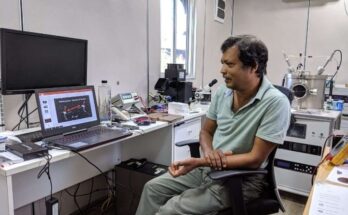After the tragedy in Meethotamulla almost every one are talking about the Garbage problem and many solutions are being discussed to tackle this problem. The waste has become a major problem for many countries including Sri Lanka ans scientists all around the world are working on sustainable solutions to hand this issue.
Polythene is one of the main component in our waste and it has become a major threat to the environment as it takes very long time to degrade naturally. But a researcher from Spain recently had found a natural way of speeding up the biodegrading process of polythene.

The initial discovery was made in an accident by Federica Bertocchini, a researcher at the Spanish National Research Council. An amateur beekeeper, Bertocchini found a wax worm infestation in some of her beehives. “In cleaning the beehives, I put the worms in a plastic bag,” she explained. “After a short while, they had escaped, and the plastic bag was full of holes.”

This simple accidental observation led Federica and fellow researchers from the Spanish National Research Council to investigate further and found that the worm actually digest polythene in to ethylene glycol, which is the structural and chemical monomer of polythene.
In their research they saw 100 wax worms biodegrading 92 milligrams of polyethylene in a mere 12 hours. This is a huge amount by far in contrast to some other methods of polythene bio degradation. For example, research work have shown that modest degradation of PE after nitric acid treatment and incubation for 3 months in a liquid culture of the fungus Penicillium simplicissimum . Slow PE degradation was also recorded after 4 to 7 months exposure to the bacterium Nocardia asteroides.
According to the research group we won’t be seeing adding the worms in large numbers to landfill sites but they are now focusing on identifying the molecule responsible for this degradation process and identifying it’s chemistry so that the molecule can be reproduced in mass scale and use it to degrade polythene waste.
Full Research Publication – Polyethylene bio-degradation by caterpillars of the wax moth Galleria mellonella



